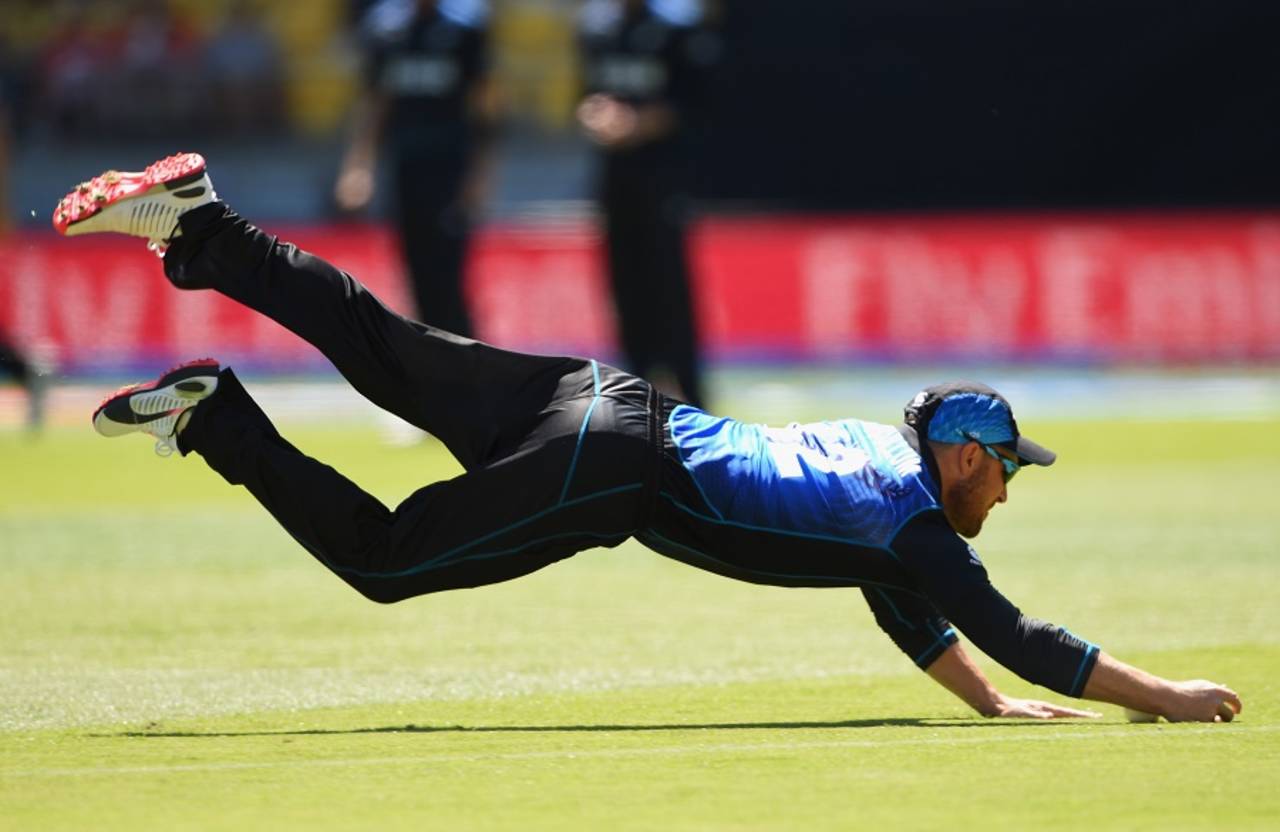How about a World Cup summit?
The major stakeholders of the game coming together at the global event makes this the best time to sit down and discuss the direction cricket should take
Ian Chappell
22-Feb-2015

Tweak fielding restrictions so that captains have to rely on their flair and imagination for tactics rather than regulations • Getty Images
One of the side benefits of holding a World Cup every four years is that it brings together a lot of cricket knowledge and ideas.
Already we've had Cricket Australia chairman Wally Edwards proposing the 50-over game be rebranded World Cup cricket to give ODIs more context. Then when Michael Holding suffered - as did all Caribbean cricket lovers - through another West Indies debacle, he declared Ireland should be awarded Test status immediately.
These are thought-provoking ideas and they evoke the question: why not hold a cricket summit during a World Cup to take full advantage of the cricket knowledge on hand?
As well as ideas to lend ODIs added context, more thought should also be given to improving the game. Cricket is at its best when both sides are trying to win through positive tactics and, consequently, I'd like to see less restriction on the fielding captain and more options to utilise his imagination.
A captain is more likely to attack with his best bowlers. If 25 overs were shared by five bowlers and after that it's up to the captain to decide who gets the remaining deliveries, he has more attacking options. At the moment too much of ODI captaincy is dictated by the administrators' regulations. Tactics should be based on intuition and knowledge, not necessity.
I'd also do away with the Powerplays, which would again leave captains more in charge of the tactics and less dictated to by regulations. Selectors should be encouraged to choose captains with flair, and if that's not forthcoming then they need to find someone who will respond to attacking incentives.
I'd also like to see a refinement in the fielding restrictions, so that the onus is again on captains to be imaginative. If the more aggressive captains win regularly, it's almost certain losing teams will start to copy the pattern.
The 50-over game doesn't need huge first-innings scores regularly, which mostly lead to blowout victories and only the occasional thrilling finish. An ODI should be a good contest that grips the fan with not only the prospect of a close finish but also some exciting individual battles.
On the subject of Test cricket: there are already too many sub-par sides playing. Bangladesh and Zimbabwe are in that category and a continuation down their current self-destructive path will soon see West Indies plummet to that level. There's no point increasing the number of Test-playing nations until the officials sit down and take a holistic view of the programming. The present schedule is a schemozzle because it's wedded to outdated concepts with a few modernisations tacked on to keep the money flowing.
The problem with promoting Associate nations to Test status is that they rarely produce genuinely fast bowlers. The odd delivery reaches 130kph-plus but the bulk are in the 120-130 bracket, and that doesn't bowl out Test sides in a hurry. In addition, these sides rarely have top-class spinners to balance the lack of pace bowling.
Consequently, Associate nations playing in a five-day game would be prone to a hammering from Test batsmen and then their batsmen would in turn cop a pounding from the opposition quickies. Uneven contests are not a pretty sight and they could also prove dangerous with an inequality of skill levels.

Associate teams usually don't have genuinely fast bowlers and will consequently struggle against Test sides in the longer format•Getty Images
To raise the level of Associate teams to Test standard it would require some rethinking. Cricket has to decide where it's heading. What are the priorities: longer-form cricket or T20, or the two moving forward hand in hand?
If it's a balance they are looking for then it probably means T20 needs a specific season in each hemisphere. T20 with more context and based on inter-city rivalries rather than international competition could be a lucrative concept.
If the idea is to expand the Test and ODI game then first-class cricket in individual countries would need to be condensed. Second-tier leagues in Europe, parts of Asia and North America could eventually lead to combined teams from these regions being highly competitive in the longer forms of the game.
Cricket needs to modernise its thinking and scheduling, and this would be best achieved by sitting all the stakeholders - players, administrators, communications representatives, marketing people - around a table and kicking around options, including fan suggestions. What better time to achieve this aim than during an all-encompassing event like the World Cup?
However, with the administration's current attitude to major structural changes, it's more likely an Associate will win the World Cup before that happens.
Former Australia captain Ian Chappell is now a cricket commentator for Channel 9, and a columnist